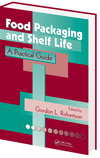From Harvest to Shelf: Enhancing Quality Through the Food Can

McCall Farms brand Margaret Holmes has grown since the 1930s to include a wide variety of Southern-style fruits and vegetables, all canned in Effingham, South Carolina, and sold nationwide. Courtesy of Crown Holdings, Inc.
The height of farming season in the United States is in full swing, with crops planted in the spring, tended throughout the summer, and harvested in early fall. Once harvesting time comes around, consumers tend to think about the fresh produce that makes its way from farms to our grocery stores, stands at our local farmers markets, and eventually to our tables. But, what about the canned food that lines store’s center aisles and provides us with produce year-round?
For generations, steel food cans have been a sustainable vessel for storing, protecting and delivering nutritious food to consumers across the U.S. throughout the year. With a more recent societal push for prioritizing fresh produce, it can be easy to overlook canned goods and the intricate process that works to capture and package crops at their peak freshness to be enjoyed all year. Additionally, the sustainable attributes of steel cans are aiming to combat the food waste epidemic in our country and provide a format that can be easily recycled, promoting a circular economy.
Let’s take a look at a food can’s lifecycle and how it impacts brand owners, consumers and our overall society.
Enhancing Nutrition
Each year in the U.S., crops are planted methodically with fresh consumption and canning in mind. To ensure produce is packed at its peak freshness, crops are picked at a precise time and sent to canning facilities often located within miles of the farm to ensure they are packaged within hours of harvest. Since produce can begin to lose nutrients as soon as harvested, the efficient canning process locks in those nutrients for ultimate benefits.
At canning facilities, produce is promptly cleaned, prepared, packed and sealed into cans, and heated to a temperature that destroys microorganisms and spores that can cause foodborne illness, preparing the food for the duration of its shelf life. A tight seal and strong can barrier properties protect the contents from any exposure to light, air and humidity, leading to canned food’s ability to be safely transported throughout the supply chain, eventually presenting consumers with fresh, nutritious products throughout the year.
McCall Farms: A Legacy of Quality
Crown works hand-in-hand with its food producer customers to understand their missions, challenges, and priorities, finding ways to elevate their products through steel food cans. Family-owned McCall Farms has built an entire legacy around its reliable fruit and vegetable brands. The company knows that maintaining its loyal customer base requires careful attention on the complete farm-to-consumer journey, utilizing the right tactics to preserve product flavor, texture and nutritional value along the way.
Since its origins, McCall Farms has chosen the steel can to help protect those high standards for product quality. Recognizing that the canning process locks in freshness and richness in record time after the point of harvest, the producer leverages steel to maintain peak freshness long-term. With strong barrier properties to damaging oxygen and light, as well as durability and tamper-evidence, the food can enables McCall Farms to distribute a safe, tasty, consistent product. It also helps them to meet ongoing missions to provide locally, thoughtfully grown goods to U.S. consumers and to combat food waste where possible. McCall Farms has made strategic choices that uphold their commitments as a producer of essential consumer goods, establishing a deep level of trust with its customer base — much of which can be attributed to a high-quality, safe product that always delivers.
Tackling the Food Waste Challenge
Beyond the nutritional benefits of canned produce, food cans are playing a critical role in combating our nation’s food waste epidemic. According to Feeding America, $473 billion worth of food is wasted annually in the United States, with 38 percent of all food going unsold or uneaten. We all know the struggle of buying fresh produce that spoils quicker than expected or gets buried in the refrigerator (out of sight, out of mind.) With canned food, consumers can rely on these products as a safe, nutritious and longer-term food source that might be a better fit for stocking up or using in certain recipes.
Food waste can also occur at earlier stages of the value chain due to overproduction on farms or product damage during transport. While farmers regularly plan against demand and what purposes crops will be harvested for, seasonal gluts are not uncommon and can ultimately result in food waste. If excess crops harvested by farmers were to be sent for canning, it would make a significant difference in reducing crops that are discarded due to differences in forecasted vs. actual demand.
Maximizing Sustainability
Once a steel food can makes its way into a consumer’s hands, the sustainability attributes of the can present ways for consumers to participate in and strengthen the circular economy. Steel food cans are infinitely recyclable, meaning they can be recycled into the same material over and over again without loss of original attributes. Compared to other packaging formats that may share mixed messages on recycling, consumers can trust the recyclability of food cans and know they have a proper way to dispose of the material for eventual reuse.
Utilizing a Trusted Format
Canned food is not new, and perceptions have changed over time since our ancestors introduced the format dozens of decades ago. At a time when food waste is high and sustainability is top of mind more than ever, it is crucial for manufacturers and consumers to be able to rely on a packaging format that delivers nutritious and safe food at all times of year. There are no doubts steel food cans will remain a chosen format for generations to come, and it is up to manufacturers to remind consumers of the benefits and importance of this trusted format.
Looking for a reprint of this article?
From high-res PDFs to custom plaques, order your copy today!










